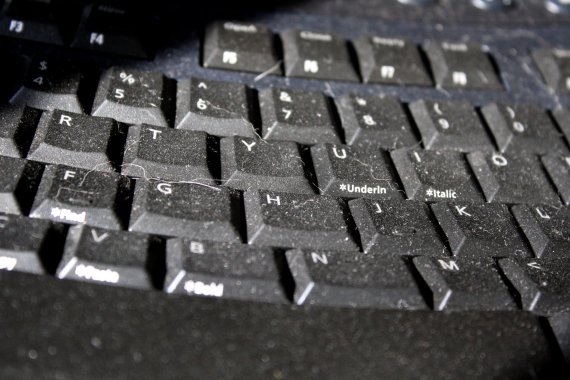© Wikimedia Commons
The link between cleanliness and productivity has been shown before, says Johan van Ophem of the Urban Economics chair group. ‘But then the level of cleanliness was assessed on the basis of an impression. What was new about our research was that we did physical tests as well as conducting surveys. And the results of the two methods are pretty similar.’
 The practical work was done by student Mirte Hoorevorts. She found five comparable organizations in the non-profit sector that were prepared to take part in the study: a school, a municipality, two foundations and a WUR department. Participants filled in surveys about their work (speed, amount and quality)
The practical work was done by student Mirte Hoorevorts. She found five comparable organizations in the non-profit sector that were prepared to take part in the study: a school, a municipality, two foundations and a WUR department. Participants filled in surveys about their work (speed, amount and quality)
and about the cleanliness of their workspace.
Besides that subjective impression, the cleanliness of the workspaces was also precisely assessed using internationally recognized benchmarks from the cleaning industry. The study was sponsored by the Dutch cleaning branch’s research association, the VSR. The quantity and the size of fine particles was measured as well. The assessments were always done in the morning, before the office was cleaned.
Apparently we don’t like dirt much: not at home and not at work either.
Johan van Ophem
The results are clear, says Van Ophem. A cleaner working environment leads to significantly higher productivity and job satisfaction. But it is not clear how much more is produced. Van Ophem: ‘You can’t tell with this method how strong the link is.’ But he does think the existence of a link carries a message for managements. ‘Cleaning is often a popular area to economize on if an organization has to make cuts.’
The question remains as to why we don’t flourish amid dirt. There are several theories about that, says Van Ophem. ‘A health expert will point to the possible risks of infection in a dirty environment. A sociologist will say that our upbringing has conditioned us to clean up the mess. But we don’t actually know for certain. Apparently we don’t like dirt much: not at home and not at work either.’

